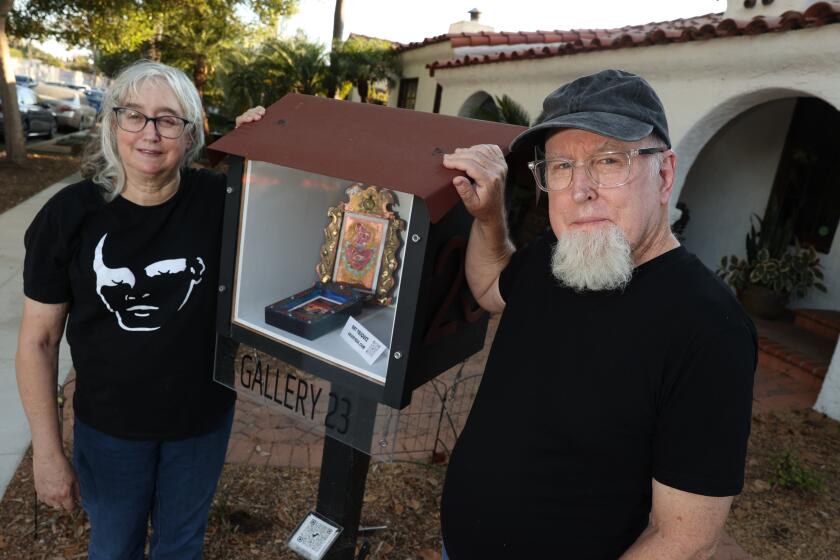Dance Reviews : Liepa, Browne Featured in ABT ‘Romeo and Juliet’
The familiar American Ballet Theatre production of Kenneth MacMillan’s “Romeo and Juliet” has grown oddly shapeless this season: hard and brittle at the edges, soft and gaseous in the center.
Friday in Shrine Auditorium, the company offered a number of sharply acted character performances heightening the lovers’ victimization: Victor Barbee’s glamorous but icy Paris, for example, or Clark Tippet’s feral, sardonic Tybalt or Michael Owen’s quietly brutish Capulet.
However, the endless marketplace ensembles drifted much closer to musical comedy diversion than purposeful character dance this time and, more than ever, Johan Renvall danced Mercutio as if spectacular displays of bravura technique were all that mattered.
As Juliet, Leslie Browne also danced splendidly but muted her formerly uncompromising portrayal so that the character now seemed sweeter: well adjusted, rather than nearly desperate for love.
Browne’s shift in interpretation may have been occasioned by her new Romeo, Andris Liepa, on loan from the Bolshoi Ballet. In his short association with Ballet Theatre, Liepa has often been an uneven soloist and an unreliable partner, but his dancing proved generally secure on Friday and utterly free of the ghastly star hauteur he has sometimes adopted.
In these respects, this may have been Liepa’s most artful and appealing performance in Southern California--including those he gave with the Bolshoi in 1987.
But much remains to be done. Though consistent and capably (if floridly) executed, his notion of Romeo as a dreamy, childlike, uncomprehending male ingenue throws the whole ballet out of whack. Romeo and Juliet are impetuous innocents, certainly--but Shakespeare, Prokofiev and MacMillan carefully placed them in the real world. In contrast, Liepa’s Romeo is totally a creation of the ballet studio: a lyrical stylization with nothing to tell us about love or loss.
As in previous seasons, John Taras neatly contrasted civil (Escalus) and spiritual (Friar Laurence) authority, Susan Jones bumbled amiably as the Nurse and John Gardner danced brightly as Benvolio. Charles Barker conducted.
More to Read
The biggest entertainment stories
Get our big stories about Hollywood, film, television, music, arts, culture and more right in your inbox as soon as they publish.
You may occasionally receive promotional content from the Los Angeles Times.










